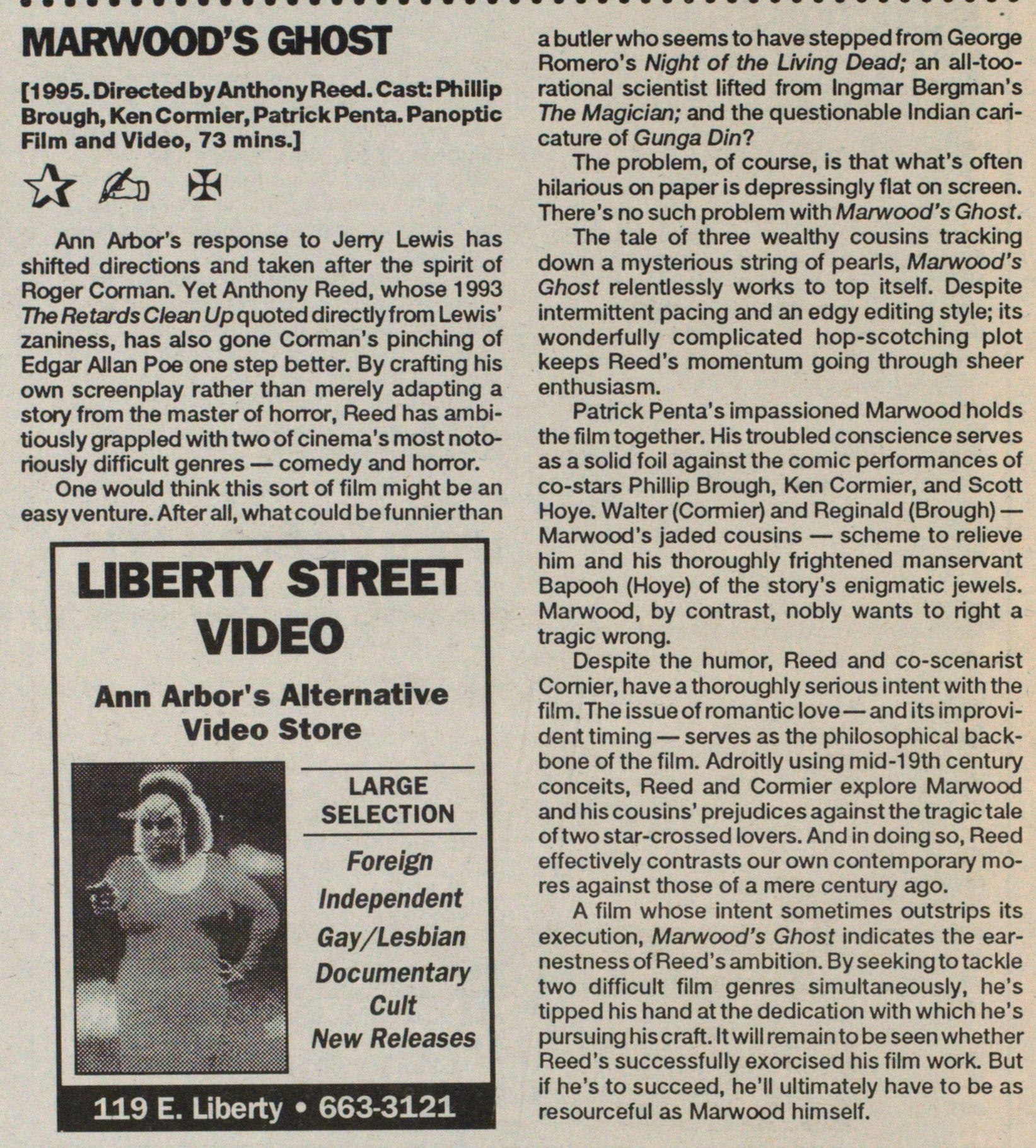Marwood's Ghost

[1895. Directed by Anthony Reed. Cast: Phillip Brough, Ken Cormier, Patrick Penta. Panoptic Film and Video, 73 mins.] Ann Arbor's response to Jerry Lewis has shifted directions and taken after the spirit of Roger Comian. Yet Anthony Reed, whose 1993 The Retards Clean Up quoted directly from Lewis' zaniness, has also gone Corman's pinching of Edgar Allan Poe one step better. By crafting his own screenplay rather than merely adapting a story from the master of horror, Reed has ambitiously grappled with two of cinema's most notoriously difficult genres - comedy and honor.
One would think this sort of film might be an easy venture. After all, what could be funnier than a butler who seems to have stepped from George Romero's Night of the Living Dead; an all-too rational scientist lifted from Ingmar Bergman's The Magician; and the questionable Indian caricature of Gunga Din? The problem, of course, s that what's often hilarious on paper is depressingly flat on screen. There's no such problem with Marwood's Ghost.
The tale of three wealthy cousins tracking down a mysterious string of pearls, Marwood's Ghost relentlessly works to top itself. Despite intermittent pacing and an edgy editing style; its wonderfully complicated hop-scotching plot keeps Reed's momentum going through sheer enthusiasm.
Patrick Penta's impassioned Marwood holds the film together. His troubled conscience serves as a solid foil against the comic performances of co-stars Phillip Brough, Ken Cormier, and Scott Hoye. Walter (Cormier) and Reginald (Brough) - Marwood's jaded cousins - scheme to relieve him and his thoroughly frightened manservant Bapooh (Hoye) of the story's enigmatic jewels. Marwood, by contrast, nobly wants to right a tragic wrong.
Despite the humor, Reed and co-scenarist Cornier, have a thoroughly serious intent with the film. The issue of romantic love - and its improvident timing - serves as the philosophical backbone of the film. Adroitly using mid-19th century conceits, Reed and Cormier explore Marwood and his cousins' prejudices against the tragic tale of two star-crossed lovers. And in doing so. Reed effectively contrasts our own contemporary mores against those of a mere century ago.
A film whose intent sometimes outstrips its execution, Marwood's Ghost indicates the earnestness of Reed's ambition. By seeking to tackle two difficult film genres simultaneously, he's tipped his hand at the dedication with which he's pursuing his craft. It will remain to be seen whether Reed's successfully exorcised his film work. But if he's to succeed, he'll ultimately have to be as resourceful as Marwood himself.